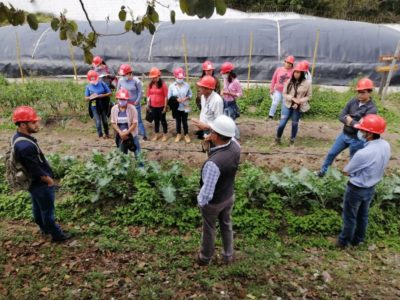Scholarships for Women Farm Leaders Update: “Pata de Chucho” training

Last year we partnered with Café Orgánico Marcala (COMSA), a cooperative of 1,573 small coffee producers in Márcala, La Paz, Honduras, for the Scholarship for Women Farmleaders Campaign. We crowdfunded $5,000 for 10 women to attend the internationally recognized training called “Pata de Chucho”, a name that symbolizes the importance of receiving and sharing the knowledge of the land and the community. So the information is spread and used to help more people in the future, and it is not kept for a few.

Due to the COVID-19 pandemic, “Pata de Chucho” could not take place last year. However, at the beginning of March, 10 women received a scholarship to attend this training program. They learned about organic farming, soil health and agricultural microbiology, micro-organisms and composting techniques, and their holistic approach to growing that centers values such as justice, solidarity, peace and reconciliation of the human being with the cosmos, the earth and with the farmer.
“COMSA training is a practical way to show small coffee producers organic alternatives to the conventional production processes that have mostly failed them.” explains the cooperative. Moreover, giving this training to women producers contributes to close gender gaps improving the quality life of their families and communities, and ensuring pata de chucho happens, i.e., that the knowledge travels and inhabits many places, farmers and families.
This year our partnership with COMSA continues with a new goal: promoting agroforestry among coffee farmers by planting 40,000 trees together with coffee crops for the conservation and protection of the environment.
The project is working with students from COMSA International School (CIS) and many other community associations. La Fortaleza Biodynamic Farm will provide them with a number of trees and they will be in charge of transporting, planting and caring for them according to the reforestation plan. The project will also work with public educational centers, along with awareness campaigns on the importance of planting hardwood species, training for the planting of trees in micro-basins, sub-basins and coffee farms.
